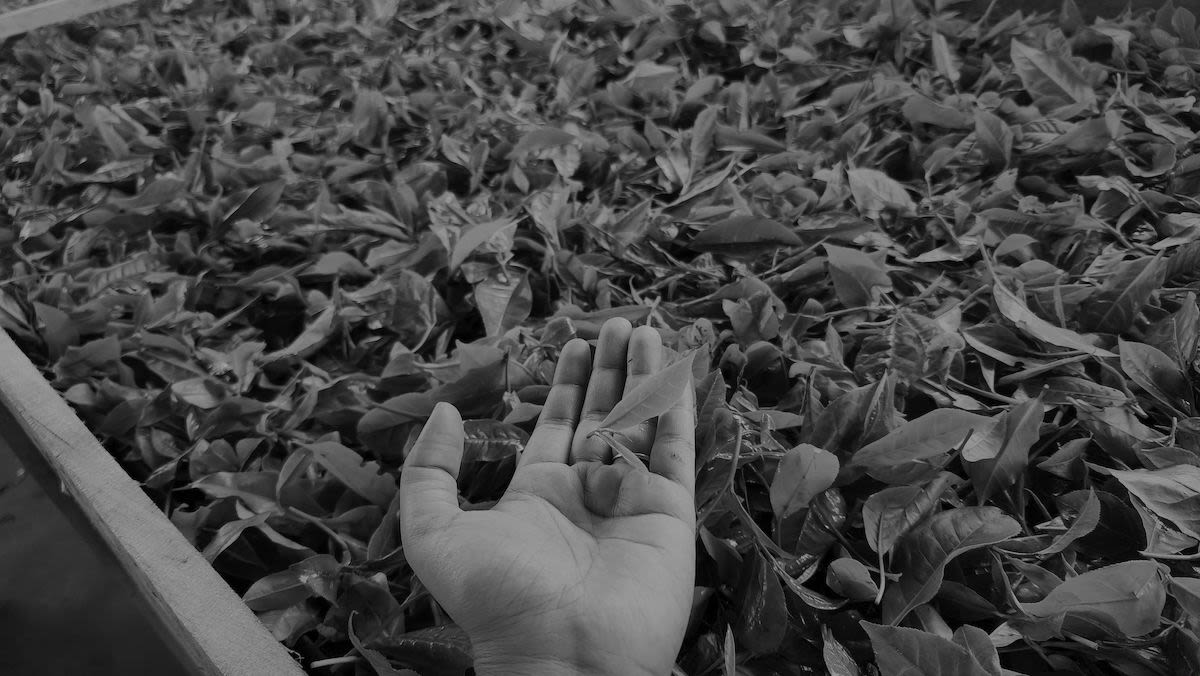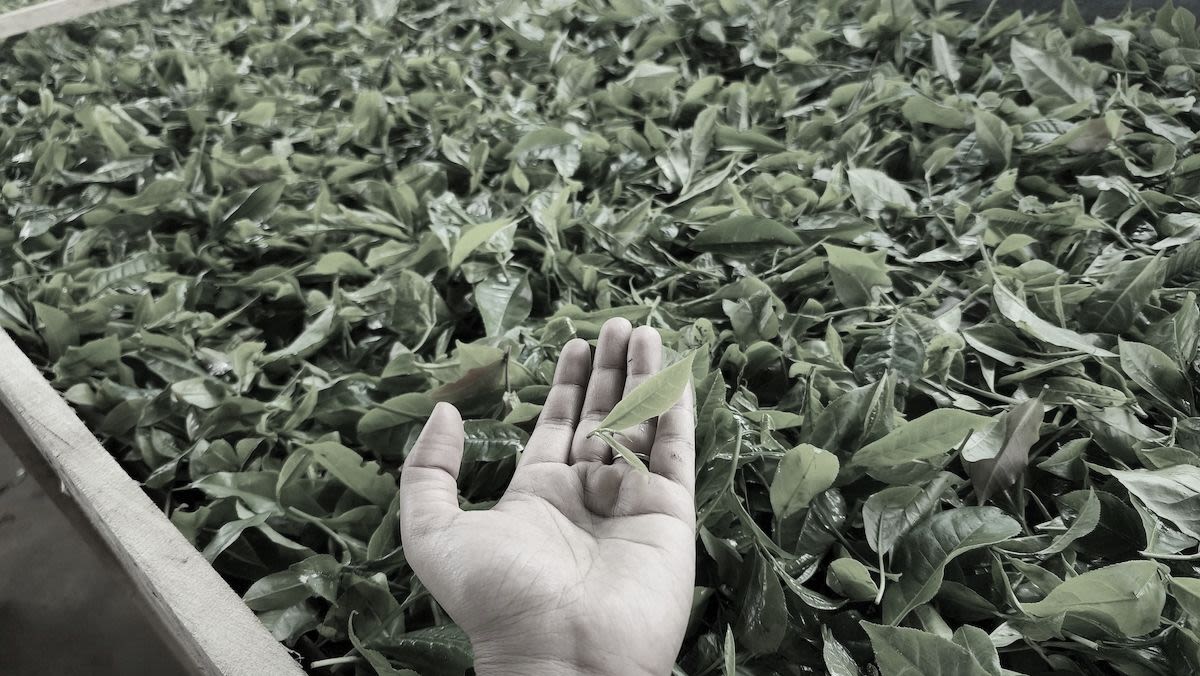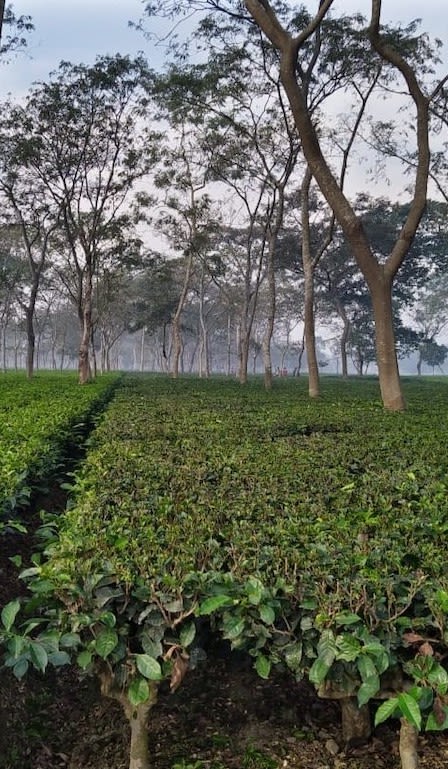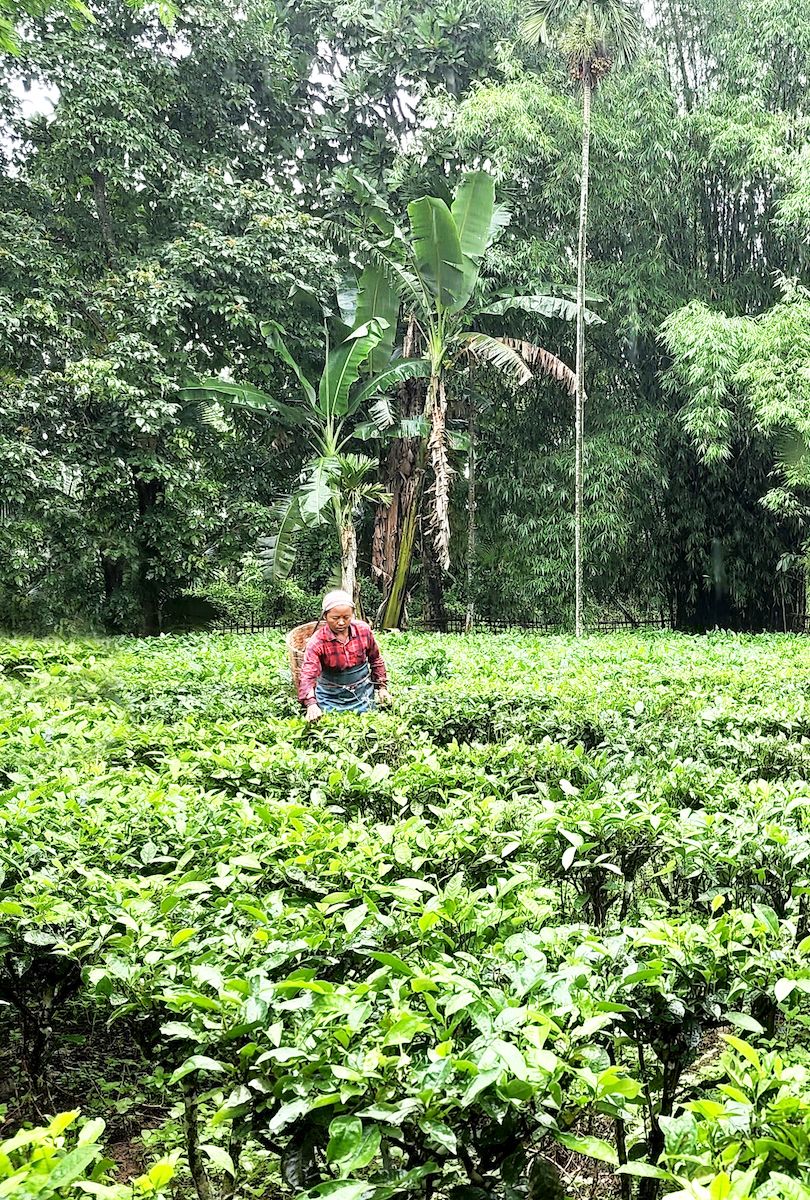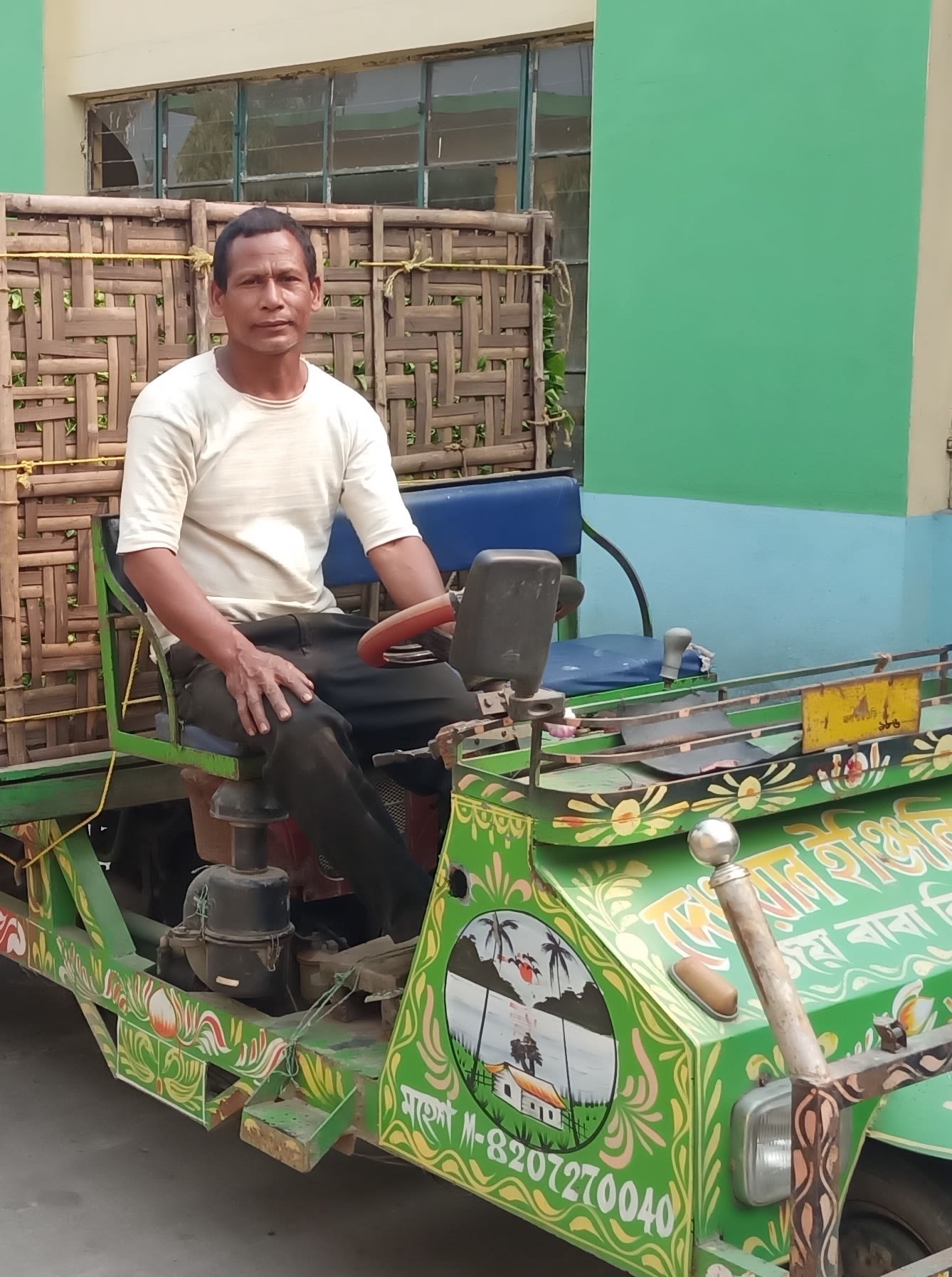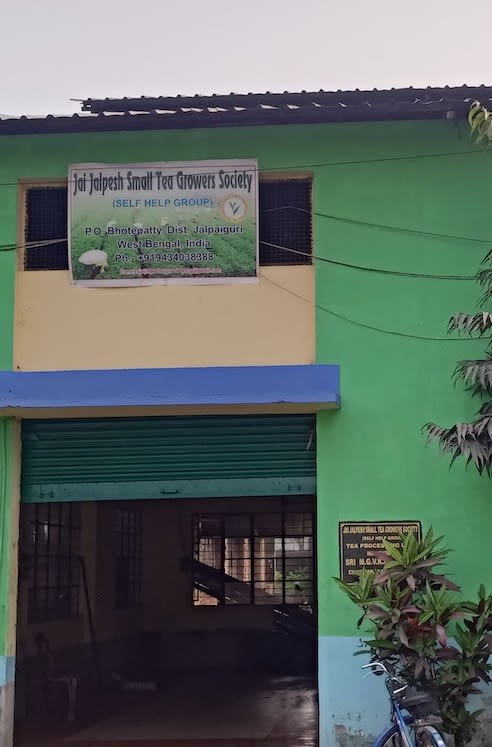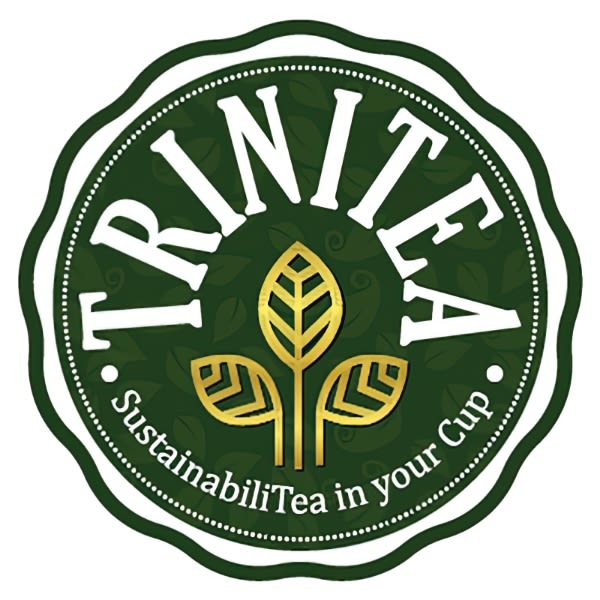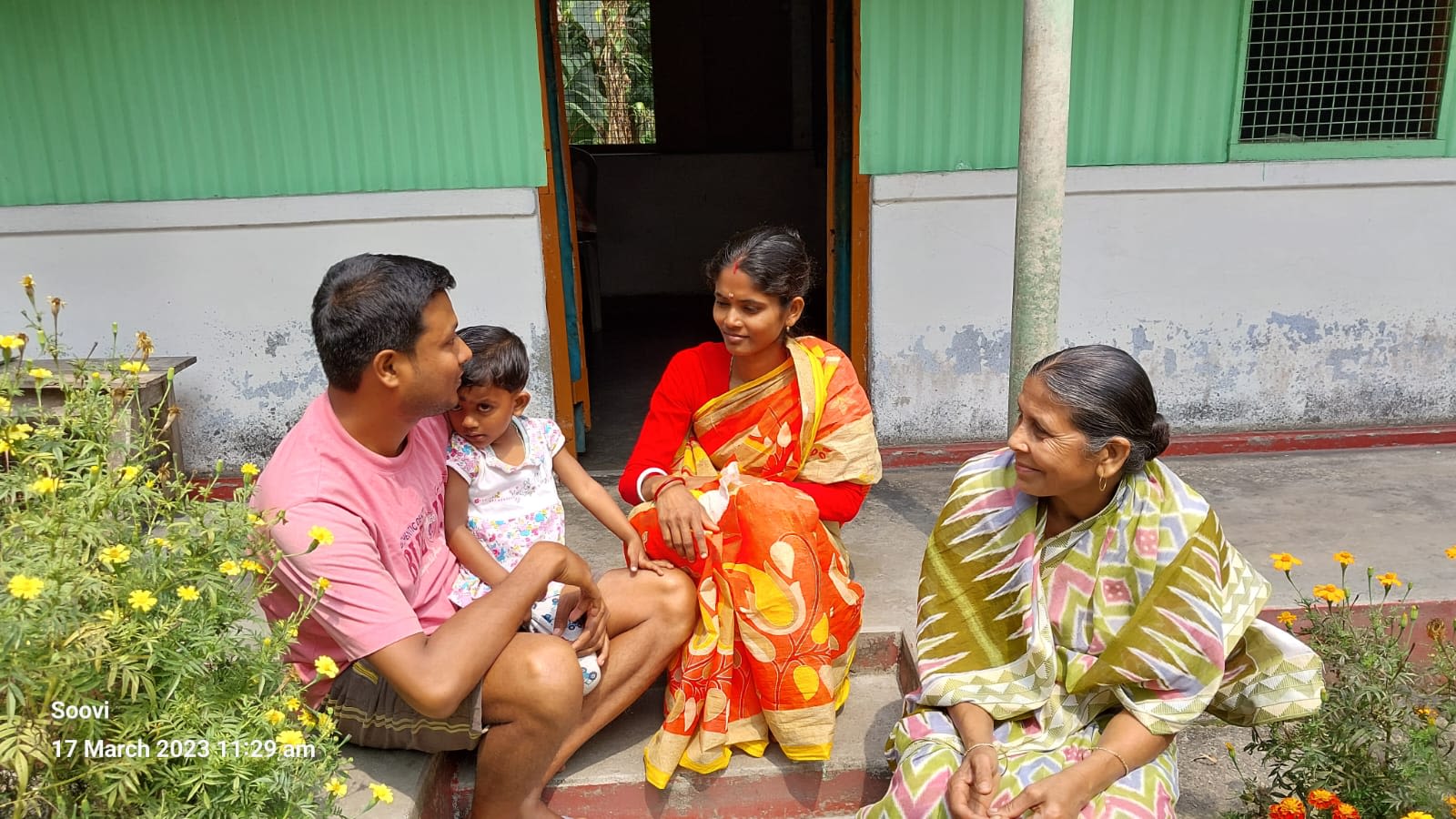MEET BIBEK
FARMING TEA FOR A BETTER LIVELIHOOD
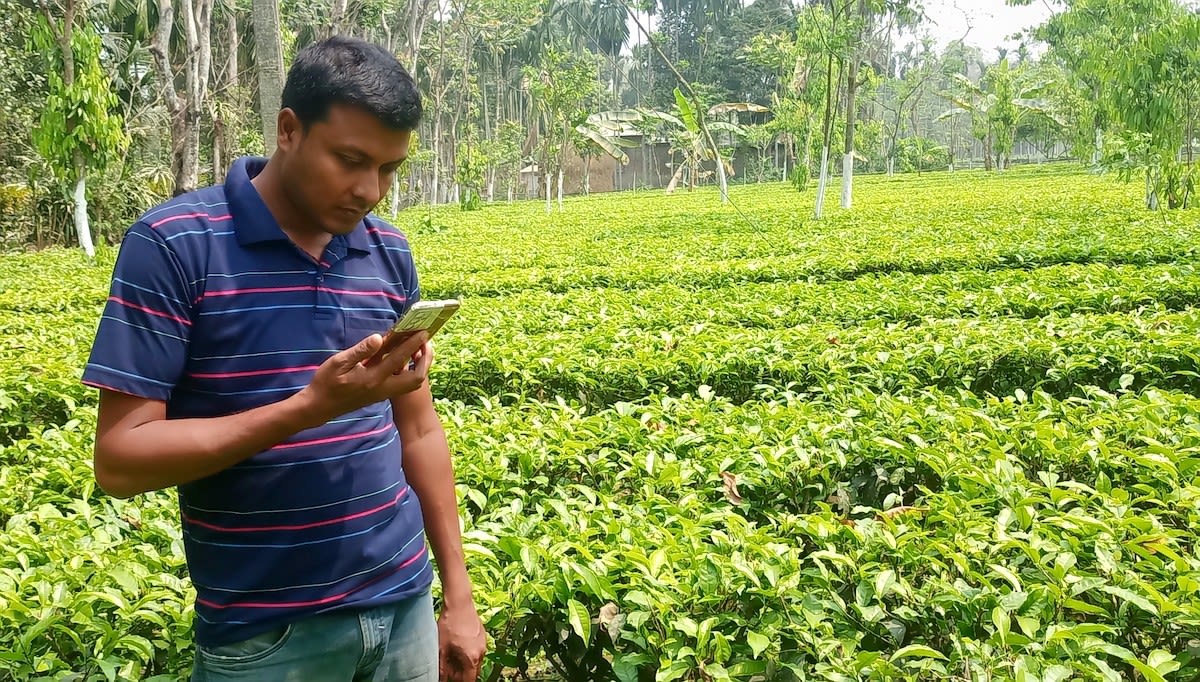
Bibek Sen is a small-scale farmer with a 1.6 acre tea garden he inherited from his father in Maynaguri taluka of Jalpaiguri district, North Bengal, India. He’s committed to improving his tea from the ground up and focused on soil health to boost quality and attract a higher price.
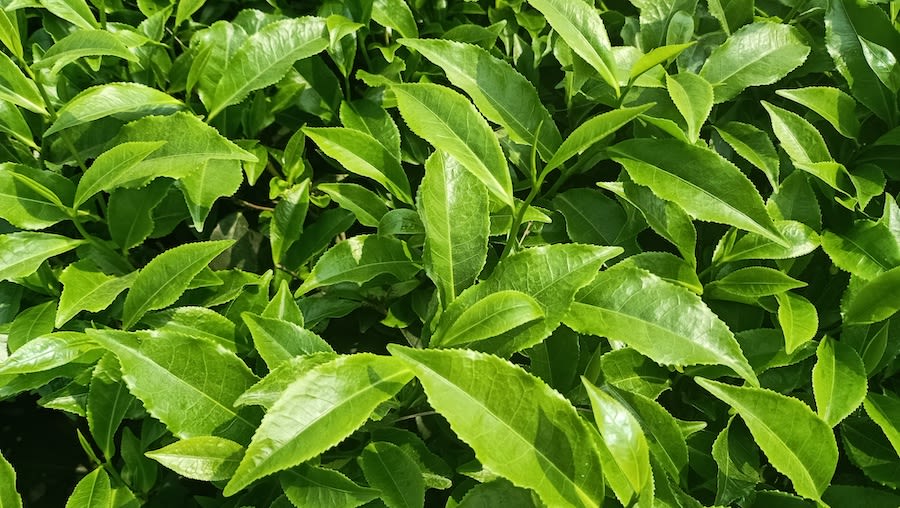
“I have learned to listen to my land. I moved away from the simple principle of farming to the idea that if soil quality improves, the tea plant will grow better, the leaf quality will improve and we will get a better price.
Bibek grows tea on 1.6 acres of land, which he inherited from his father in 2015. His family includes his mother and his wife – both of whom work on the farm – and a daughter who will be starting school this year. While the harvest from the tea garden is their primary source of income, Bibek also grows paddy and potatoes on another 2.6 acre of land to supplement his income.
Building resilience, increasing income with better tea
Tea is the second most widely consumed beverage in the world after water, and India is among the top producers, exporters and consumers of tea, globally. Bibek and millions of small tea growers across India produce more than 50% of the country’s total production.
These farmers are the major suppliers of green leaf to tea factories. However, the majority of these green leaves do not come with any assurance of compliance with prescribed standards for safe pesticide use or quality manufacturing standards.
Simultaneously, over the years, farming has become increasingly difficult for small growers – like Bibek – due to a lack of access to information on better farming practices that could improve climate resilience, which in turn has led to lower yields and quality issues.
In 2019, Bibek began working with Solidaridad’s Trinitea programme, an effort to improve the economic, social and environmental performance of tea producers in India. Developed jointly by the Indian Tea Association (ITA) and Solidaridad, Trinitea provides small tea growers access to services and sustainability support to produce high quality and safe tea, which can fetch a better market price.
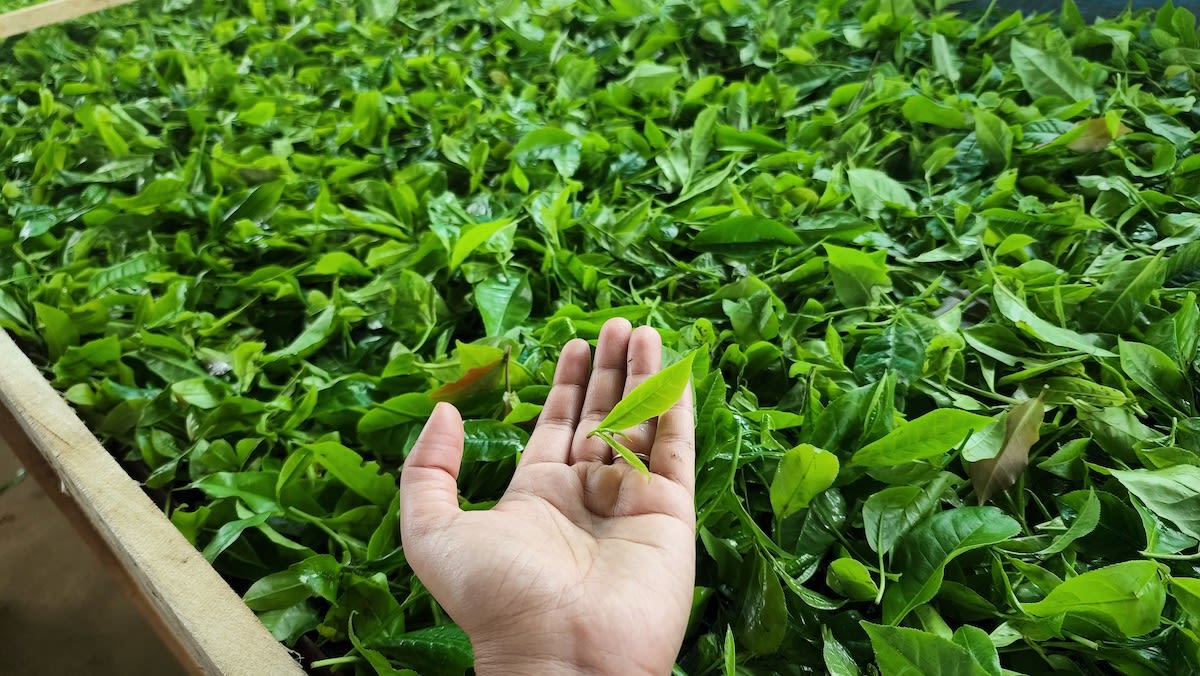
“Before Trinitea, we were not aware of good agricultural practices, and used to make a lot of mistakes. We did not know the best time to pluck (the leaves), how to pluck them, which pesticide to use for what kind of pest and when to even apply them."
Trinitea aims to help small tea growers adopt sustainable good agricultural practices, in turn enabling a safe source of leaf supply to factories. Trinitea does this through:
- A smart digital self-assessment system (the Trinitea app) to improve field management practices of the small growers in a step-by-step manner to achieve overall operational efficiency, as well as assess compliance to sustainability standard(s);
- Year-round in-person training to improve agronomical, social and environmental practices to reduce crop losses and enhance tea quality;
- Adopting Plant Protection Code (PPC) as established by the Tea Board for compliance with Food Safety and Standards Authority of India (FSSAI) norms;
- Providing guidance on adoption of climate-smart measures;
- Providing a strong brand identity to smallholders’ tea through the Trinitea logo for marketing, which helps with marketing their product.
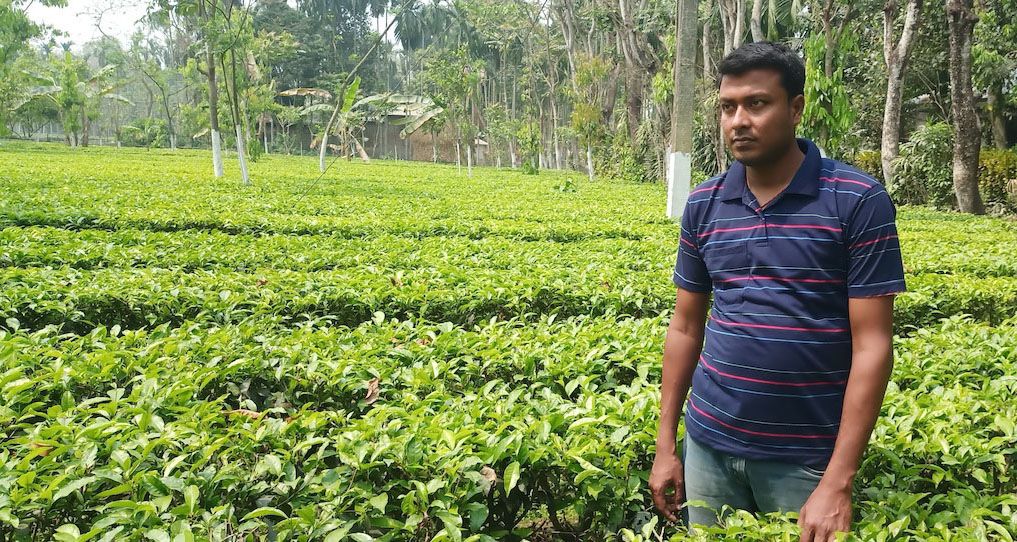
"We were using chemicals in a big way, to an extent that we had damaged the soil. With Trinitea, we learned the appropriate amount of fertilizer to apply per bigha of land, so that the soil is not destroyed."
Over the course of the years, Bibek and 345 other farmers working with Trinitea in Maynaguri taluka reduced the amount of money they spent on fertilizers/pesticides by 40-45% – in other words, greater savings for more income.
Furthermore, Bibek also uses the Trinitea app, a tool for farmers that helps them to certify their produce against sustainability parameters, including better soil, environmental management, water and harvesting practices. The app provides users with a rating up to three stars that can help them identify where they are performing well and where they need to improve.
Through the app Bibek maintains a digital diary that helps him identify plantation and harvesting patterns; he also has access to a monthly bulletin on tea cropping, and gets a Plant Protection Checklist for chemicals, fertilizers, all in his local language. More importantly, the app provides him information on the total green leaf he/his farm has supplied to particular factories.
Over the last four years, the Trinitea programme has reached 102,866 small tea growers in 2,376 villages across four states of India. Key achievements include:
- A 12% average increase in crop yield;
- Reduction in fertilizer usage, including a 67% drop in the use of Nitrogen, which is a major source of GHG emissions in tea fields;
- Savings of Rs 13,000 annually on fertilizers and around Rs 10,000 on pesticides for farmers with average land size of 1 hectare;
- A better price per kg, increasing from around Rs 13 in 2019 to Rs 18 in 2022, due to improved tea quality;
- Tea that’s traceable to every farmer using the Trinitea app;
- The connection between tea consumers and farmers using QR codes that leverage the information gathered in the Trinitea app.
Trinitea farmer harvesting tea
Trinitea farmer harvesting tea
A worker delivers fresh tea leaves to the factory
A worker delivers fresh tea leaves to the factory
The Jai Jalpesh Tea Growers Society, where Bibek delivers his tea for processing.
The Jai Jalpesh Tea Growers Society, where Bibek delivers his tea for processing.
Sustainability in Supply Chain
While farmers like Bibek get trained on good agricultural practices, a sustainability initiative cannot take off without a fair/better price for their produce. To this end, Trinitea field officers held discussions with Jai Jalpesh tea factory, also in Maynaguri, to ensure a better price for Trinitea-assessed green leaf. Formed by Jai Jalpesh self-help group (SHG), the factory works with 290 small tea growers, including Bibek.
In June 2021, Trinitea launched a pilot with 15 farmers, including Bibek, who were Trinitea-assessed and earned an additional Rs 10 per kg of tea for better quality. But before that, Jai Jalpesh had to comply with the Trinitea framework, which includes compliance to health and safety of workers in tea gardens, and better working conditions for workers in the factory. Only Trinitea-compliant factories are eligible to receive certified green leaf from Trinitea-assessed small growers like Bibek.
The Jai Jalpesh factory used the Trinitea app (for factory) to certify itself. It also uses the app to track the movement of the green leaves from the field to the factory.
Leaves sourced from Trinitea-assessed growers were branded separately under a ‘Jai Jalpesh Supreme’ mark. By July, 20 more farmers were added to the pilot. For the factory, the ‘Jai Jalpesh Supreme' tea leaves fetched an additional Rs 20 per kg against regular tea.
Buoyed by the market success, more farmers joined in and by November, 110 farmers were supplying Trinitea-assessed green leaf to the factory. In 2021, the factory sold 133,439 kg of ‘Jai Jalpesh Supreme’ tea at private sale and auctions and fetched an additional Rs 16 per kg (approx.) compared to the regular tea leaf.
In 2022, Jai Jalpesh factory decided it will buy only fine-quality leaf, making Trinitea assessment mandatory for all of the 290 small farmers it works with.
Besides fetching a better price, there are other benefits for the factory too.
High quality tea leaves stay fresh for a longer period of time. There is less wear and tear of our machines because such leaves can be cut in little time.
Traceability in Supply Chain
This year, Jai Jalpesh plans to go a step further and manufacture packaged tea with the Trinitea logo and a QR code on it.
“Our plan is to participate in the Gujarat Tea Expo this year and showcase the Jai Jalpesh Supreme tea with the QR code,” say Rajat and Birendranath.
The Trinitea logo indicates that a particular tea is produced in a sustainable manner
The Trinitea logo indicates that a particular tea is produced in a sustainable manner
While the Trinitea logo can be a distinguishing mark for sustainably produced, high-quality tea, the QR code when scanned can tell a buyer/consumer which farmer produced the tea. This brings in the key element of traceability – largely missing – in the tea supply chain, while also putting small and marginalized growers like Bibek at the front and centre of the tea story, enabling them to reclaim the space.
“The transparency mechanism to trace the sustainability of the product through the value chain increases customer trust and goodwill for the brand," says says Shatadru Chattopadhayay, Managing Director, Solidaridad Asia. "SoliTrace provides a technological means for tea smallholders, as well as tea packers, to stay relevant with the changing times and serves consumers who are growing increasingly conscious of health, environmental and social implications of every choice they make, be it a product or lifestyle.”
“We are strengthening smallholder associations and promoting cluster-based approaches for tea manufacturing, procurement and sale. When the tea leaves are sourced from farmers close to a particular factory, it results in cost savings for the factory," says Ramanand Tiwari, Assistant General Manager, Tea, Solidaridad.
"At the same time, Trinitea farmers are producing quality leaves which fetch better prices in the market. Jai Jalpesh is a good example where both the farmer and the factory are getting a premium price for tea.”
A life changed
Tea farmer Bibek Sen and his family at home
Tea farmer Bibek Sen and his family at home
For Bibek, life has changed. He now gets Rs 23-25 per kg of green leaf versus Rs 12-14 per kg before joining Trinitea. With better income and lower expenses, his savings have grown in the last three years. Bibek recently finished constructing a new home for his family.
“I didn’t have to take a loan from anyone, my savings were enough,” he says with a smile.
